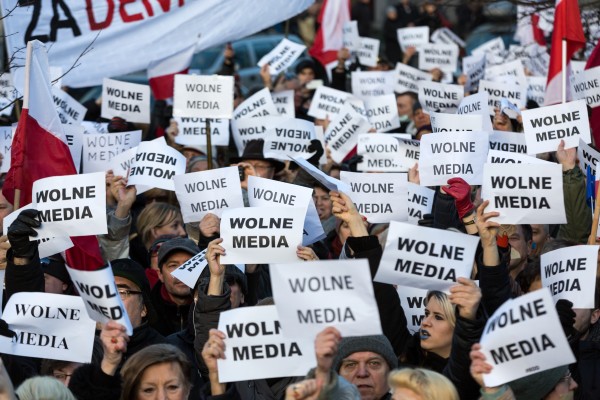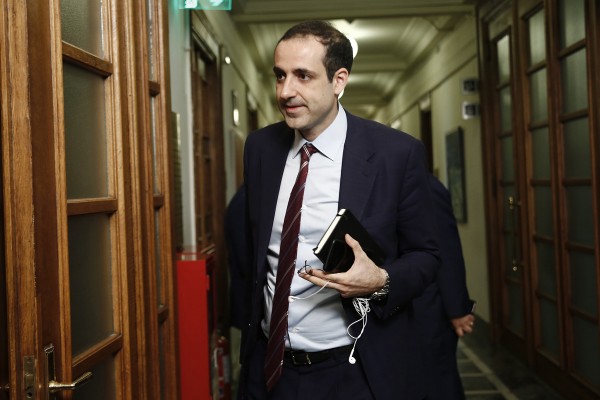Amid reports of attacks on journalists covering post-election protests in Russia, a prominent Moscow-based journalist warned this week that President-elect Vladimir Putin will maintain force as a tool to suppress dissent despite a changed political landscape.
Galina Sidorova, chair of the Foundation for Investigative Journalism in Russia and vice-chair of the International Press Institute (IPI)’s Executive Board, predicted that Putin will attempt to reach out to the newly-energized opposition. But she cautioned journalists to be wary that Putin will return to using what she called “old tactics”.
Russian broadcaster RT said Wednesday that Putin told reporters he was not surprised by recent protests and that he said that the opposition must now shift from street action to serious political work. He also rejected suggestions that police acted unprofessionally during rallies that followed the disputed March 5 election, which has been criticized for widespread irregularities.
At least five journalists were reportedly attacked in connection with the protests, and a number of other journalists were also detained.
Sidorova, who said she has participated in most of the protests and rallies that occurred in Moscow since disputed parliamentary actions on Dec. 4, 2011, described what she has witnessed.
“I would say the attitude of the Kremlin towards the protesters (opposition) and respectively towards the free press was changing from angriness to perplexity then to relevant tolerance and after March 4, back to a certain degree of angriness and temptation to ‘sabre-rattle’,” she told IPI. “One of the arguments authorities use against journalists is that they are not doing their jobs at the rallies, but participate as citizens and as citizens break the law if protests are non-sanctioned, and that leads to arrests. Sometimes it is true. But in most cases I know of, journalists were simply prevented from doing their jobs.
“There is a danger that ‘victorious Putin’ will be resorting to old tactics to crush dissent both in the streets and in public discussion. Although at the moment it still seems that the new – I would call it ‘citizen opposition’ – that was born in the end of 2011 and started forming a new political landscape in Russia cannot be easily suppressed or just ignored as it used to happen with the old type opposition parties in the first Putin or even Medvedev years. Putin will rather try to construct a new type of relationship with this new opposition – on the one hand proceeding with political party reform and on the other hand keeping resort to force as one of the tools in his arsenal. And that will certainly in the first place affect independent media.”
The Committee to Protect Journalists (CPJ) has reported that police used violence when arresting Moskovskiye Novosti daily reporter Pavel Nikulin, news website Ridus reporter Maria Klimova and RIA Novosti news agency photojournalist Andrei Stenin during an opposition demonstration on Mar. 5 in Moscow’s Lubyanka Square. The group also said that Kommersant FM reporter Ulyana Malashenko was hospitalized after police dispersing a crowd at the square struck her in the head with a baton, and that unidentified assailants attacked Ekho Moskvy reporter Aleksandr Borzenko as he covered a march by nationalist groups.
Reporters Without Borders (RSF) similarly reported that police arrested Kommersant photographer Gleb Shyelkunov, reporter Arkaba Batchenko and leading opposition blogger Alexey Navalny at a Mar. 5 demonstration in Moscow’s Pushkin Square. The group also said that two journalists in St. Petersburg – Lev Lurie of Fontanka.ru and Boris Vishnevsky of Novaya Gazeta – were briefly detained.
All of the journalists arrested in connection with the protests have reportedly been released, although some may still face charges.


